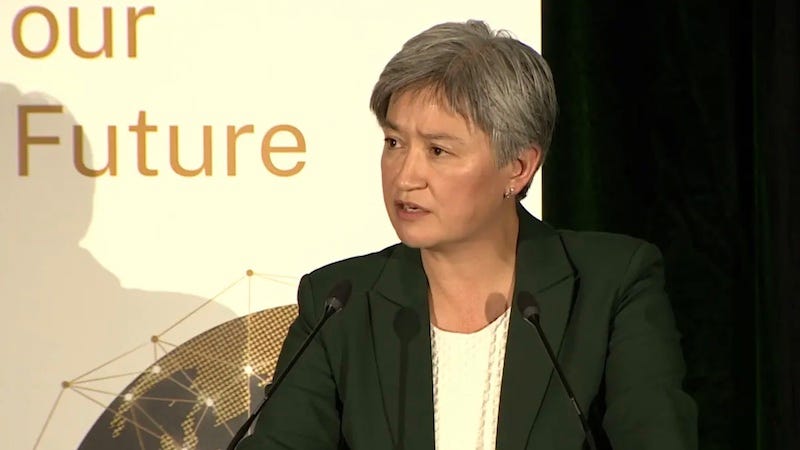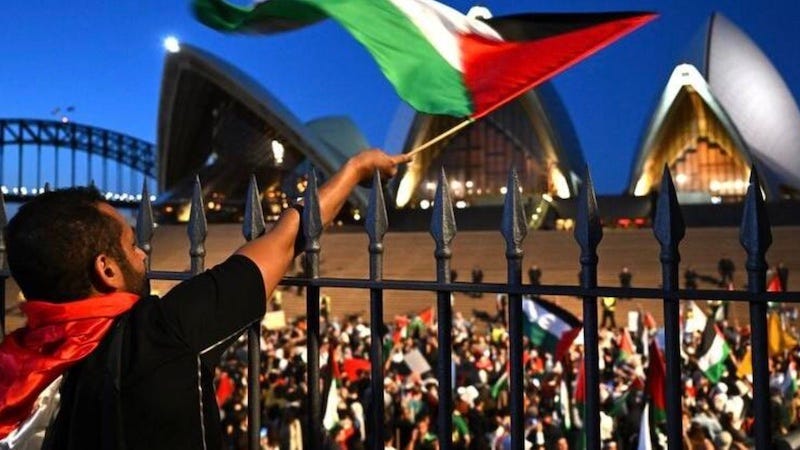Navigating the complexities of the Gaza conflict and global diplomacy
The local political responses reflect a nation striving to reconcile its international engagements with domestic political accountability and integrity of leadership.
The escalation of the war in Gaza and its ripple effects extend far beyond the immediate conflict zone, touching on global politics and influencing national policies, including those of Australia. The recent increase in hostilities, marked by Iran’s unprecedented direct missile and drone attacks on Israel, stems from a complex web of regional tensions and historical grievances. This act by Iran, a response to a provocative Israel Defense Forces attack on its embassy in Syria, signifies a dangerous broadening of the conflict’s scope, which could lead to further instability in the Middle East.
This international conflict also has profound implications for Australian politics, especially concerning its foreign policy and domestic political discourse. Australia, with its significant Jewish and Muslim populations, finds itself in a delicate position, needing to balance its historical, if misguided, support for Israel with the growing calls for recognition of Palestinian statehood. The recent statements from Foreign Minister Senator Penny Wong highlight this shift, where she advocated a two-state solution as the only viable method to end the cycle of violence. It’s inherently correct—the long-held view of a two-state solution can’t be achieved if Palestine is not a state—and her comments have stirred controversy within Australia from the usual conservative players, reflecting a fractious debate on how the nation should navigate its diplomatic ties and moral positions on international justice and human rights.
The situation has also been a catalyst for wider discussions in Australia about the role of international law and the responsibilities of nations in upholding peace and security. The Australian government faces increasing pressure to align more closely with global consensus, which leans towards recognising Palestinian statehood. This is underscored by the significant number of UN member states that support such a move—140 of the 193 members—though challenges remain, notably the potential for veto by permanent UN Security Council members, including the United States, which recently used its veto power to block Palestinian statehood.
Australian domestic politics also feels the strain as community groups and political factions express divergent views on the issue, mirroring the global division. The response from the conservative and self-interested Australian Jewish Association, which vehemently opposes recognising Palestinian statehood, contrasts sharply with the broader international and national movements towards a two-state solution. This dichotomy represents the deep ideological divides within Australia that mirror the global disagreements over the Israeli–Palestinian conflict.
The war in Gaza and the international responses to it, including from actors like Iran and Israel, significantly affect Australian political discourse and policy. As the conflict continues to evolve, Australia must navigate its diplomatic strategies carefully, balancing its domestic interests with its international obligations and moral stances on peace, justice, and human rights.
How the Israeli–Palestinian conflict shapes Australian politics
The domestic political landscape in Australia is intricately tied to its international relations, especially concerning the Israeli–Palestinian conflict. As the conflict escalates, comparisons are being drawn between Israeli Prime Minister Benjamin Netanyahu and former British Prime Minister Margaret Thatcher. Both leaders, facing political unpopularity, leveraged military actions to boost their domestic approval ratings. Netanyahu, like Thatcher with the Falklands conflict in 1982, is using the ongoing violence to solidify his position amid political instability.
This perception has sparked significant debate within Australia, impacting both public opinion and the stances of political leaders. Prime Minister Anthony Albanese and Senator Wong have faced considerable pressure, navigating the complex and often divisive reactions among the Australian populace—the Australian government, while officially supporting a two-state solution, appears to vacillate under the influence of powerful lobbies, such as the Australian Jewish Association. The situation is further complicated by Israel’s actions, particularly under Netanyahu’s leadership, are motivated by strategic interests in natural resources, such as gas reserves near Gaza, rather than purely security concerns.
Public response in Australia has varied widely, with community leaders and activists vocalising either staunch support for Israel or condemnation of its actions and calling for more robust support for Palestinian statehood. The Labor Party, historically more sympathetic to Palestine, has found itself at a crossroads, attempting to balance these complex international dynamics with domestic political consequences. The Australian government’s approach has been characterised by caution, as it weighs the implications of fully endorsing Palestinian statehood against the backdrop of international relations and domestic electoral fallouts.
The controversy over Senator Penny Wong’s shifting stance on Israel and Palestine underscores the broader political and ethical dilemmas facing Australia. Her nuanced position—to put it very generously—reflects an attempt to mediate between the humanitarian crises in Gaza and the powerful domestic and international interests that influence Australia’s foreign policy. This balancing act is indicative of the broader challenges that Australia faces on the world stage, where it must navigate its values, strategic interests, and international obligations.
The impact on Australian political leadership
The Israeli–Palestinian conflict continues to cast a shadow over Australian politics, influencing not just foreign policy decisions but also the dynamics within domestic political arenas. The leader of the opposition, Peter Dutton, recently took a controversial stance that starkly contrasts with the more measured approach of the government. Dutton’s remarked that “whilst no one was killed during the protests… the events of the Sydney Opera House were akin to a Port Arthur moment in terms of their social and national significance …Prime Minister Albanese has not driven risen to that moment, as John Howard did,” a comment that was guaranteed to incite and cause yet another divisive debate within the community.
This discourse is not just about the events themselves but also about the role of leadership in times of national and international turmoil. Dutton’s comments were intended to as a criticism of Prime Minister Albanese’s handling of the issue of Gaza, suggesting a failure to rise to the occasion as past leaders have. However, this comparison has been met with backlash and ridicule from various quarters, including from within his own party, especially from the Liberal Party backbencher, Bridget Archer.
The government’s Jason Clare commented that “if you want to run the country, you can’t run your mouth. Last week, Peter Dutton took the sight of another country that killed an Australian citizen. This week, he is using the murder in cold blood of 35 Australians to try to make a political point. This bloke is all aggro and no judgment.”
Dutton’s behaviour resulted in a response that shows a broader discontent with what is seen as an opportunistic and divisive approach to politics and a style of irresponsible leadership that prioritises sensational rhetoric over substantive policy.
The fallout from Dutton’s comments has also highlighted a schism within the Liberal Party, with figures such as Archer calling for a return to more principled politics, echoing a sentiment that many Australians find lacking in Dutton’s approach. This internal party conflict mirrors the larger national debate over how Australia should engage with complex international issues like the Israeli–Palestinian conflict. The sharp critiques from within Dutton’s own ranks—Archer wasn’t the only Liberal Party to voice her dismay—suggest a party at odds with itself on the direction and tone of its leadership.
The broader Australian political landscape is witnessing a shift towards more grassroots movements, as indicated by the Climate 200 initiative’s plans to support candidates in upcoming elections. This movement signifies a growing public demand for new political narratives that diverge from traditional party lines and address global issues like climate change and international conflict with a fresh perspective. Such movements pose a challenge to established figures like Dutton, who are perceived as out of touch with the evolving political consciousness of the Australian public.
The discourse surrounding the Israeli–Palestinian conflict not only shapes foreign policy but also deeply influences Australian domestic politics, challenging leaders to adapt to a rapidly changing political environment. As Australia deals with these complex global interactions, the political responses at home reflect a nation striving to reconcile its international engagements with domestic political accountability and integrity of leadership.










